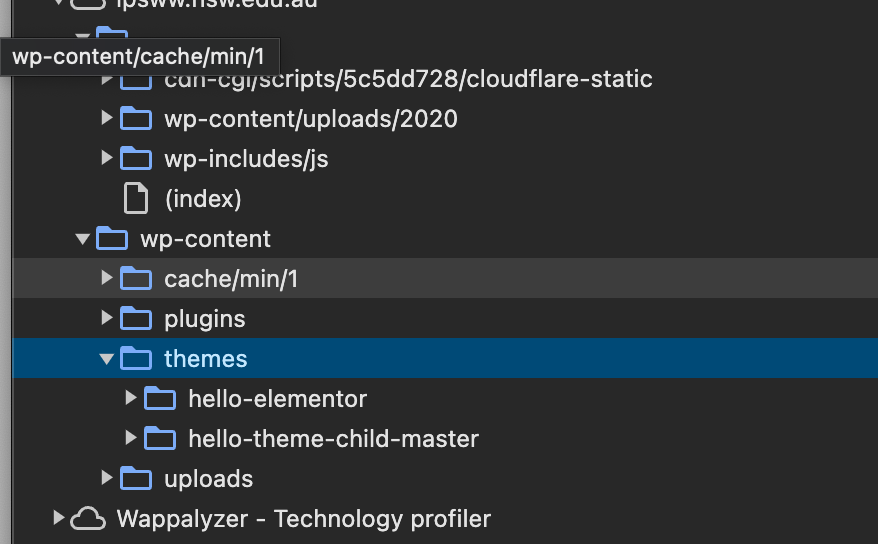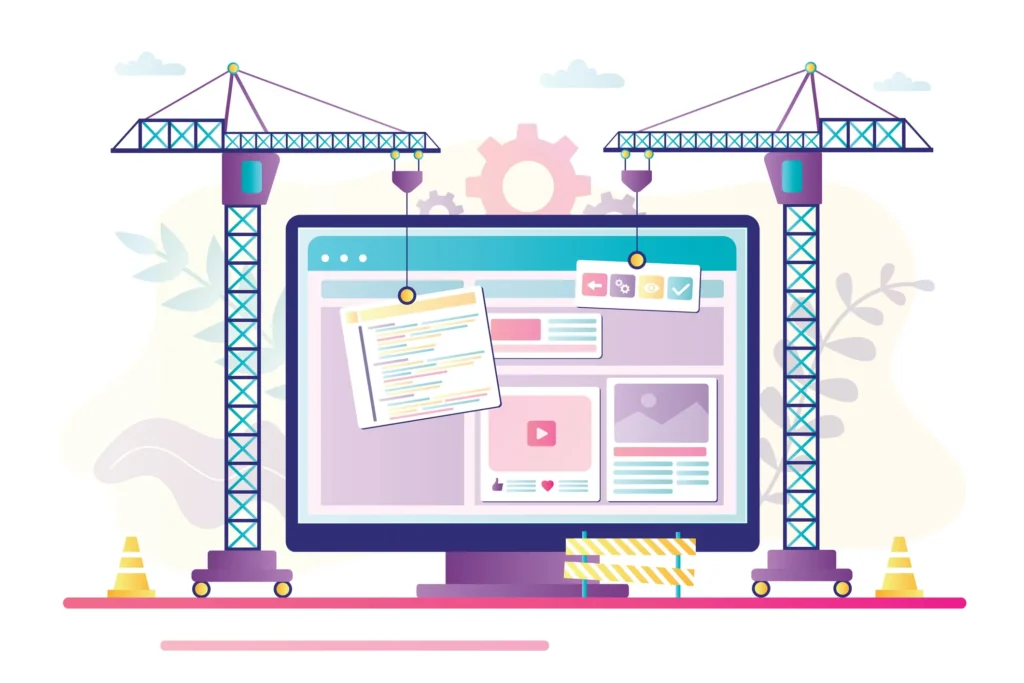Website Templates are for Chumps: The Benefits and Drawbacks of Using Prebuilt Designs
Website templates have become a ubiquitous tool for both self-hosted solutions and SaaS agencies. Let me start by being upfront though Get Leads AU builds custom sites. Custom designs, strategy, development because no one size fits all. Let me first explain that the below is my personal experience after 20 years in the industry. People get very protective over their workflows and content management systems. Nobody wants to be wrong about driving that lemon of a car even though you know deep down you should have chosen something else. My basis for choosing any theme or CMS is always best practice and light weight web design that conforms to W3C stands and is accessible to all. I’m a bad businessman I don’t make decisions purely on money it’s really coming down to what I consider quality websites and being proud of what I’ve built.
Let’s explore, despite the advancements in technology and the increasing demand for unique, custom-built websites, many web design agencies still opt for prebuilt templates. But why is this the case? Let’s explore the benefits and weaknesses of using website templates and understand why this approach remains popular.
The Benefits of Website Templates even in Wagga
- Cost-Effectiveness
One of the most significant advantages of using website templates is the cost. Custom-built websites can be expensive, requiring substantial time and resources. Templates, on the other hand, offer a more affordable solution, making professional-looking websites accessible to small businesses and startups with limited budgets. - Time Efficiency
Building a website from scratch can be a time-consuming process. Templates provide a faster alternative, allowing agencies to deliver websites quickly. This is particularly beneficial for clients who need to get their websites up and running promptly. - Professional Design and Functionality
Many templates are designed by professional web designers, ensuring that they are aesthetically pleasing and functional. They often come with a range of built-in features and plugins that enhance the user experience, which might be time-consuming and costly to develop from scratch. - User-Friendly Customisation
Modern templates, especially those from platforms like Elementor, offer extensive customisation options. This allows agencies to tailor the template to the client’s needs without extensive coding, striking a balance between prebuilt convenience and personalised design.

The Weaknesses of Website Templates
- Lack of Uniqueness
One of the primary drawbacks of using templates is the lack of uniqueness. Since templates are available to multiple users, it’s possible for different websites to look similar, which can be a disadvantage for businesses looking to stand out in a crowded market. - Limited Customization
While templates offer customisation options, they are often limited compared to a fully custom-built website. Agencies may find themselves restricted by the template’s framework, unable to implement certain features or design elements specific to the client’s vision. - Potential Performance Issues
Templates often come with a plethora of features and plugins, some of which may not be necessary for every website. This can lead to bloated code and slower load times, negatively impacting the website’s performance and user experience. In my experience over 20 years this is one of the most compelling reasons to not use website templates. - Security Risks
Prebuilt templates can pose security risks if not regularly updated or if they contain vulnerabilities. Relying on third-party plugins and themes can expose websites to potential security threats, making regular maintenance and updates crucial. - Ongoing Licensing
Say the Wagga web design agency builds you a site and everything looks great. 12 months down the line you get into the backend and you discover that your editor is broken and needs an update. No problems I’m sure you asked for an ongoing support plan but wait, the theme is no longer compatible with the latest copy of the editor. Oh dear, looks like it’s new site time. I’ve seen this a few times where sites have transferred into Get Leads to be hosted and discovered numerous issues to do with missing license keys to get updates if updates even exist. If it’s a custom build Get Leads uses tools that mean your site is not depend on any one element or plugin to function. - But I want my template to do this? Why of course it can do that but you’ll need to may for this extra plugin. I’m not saying this is purely a Elementor/SquareSpace/Divi thing but it’s certainly a thing for builders like these that value add by upselling on some very basic functionality. They provide an ecosystem inside an ecosystem of extra plugins and themes. When you thought it was simple.
Why Agencies Choose Website Templates
Despite these weaknesses, many web design agencies continue to use templates. There are several reasons for this:
- Client Budget Constraints
Many clients have budget constraints that make custom builds impractical. Templates provide a cost-effective solution that still delivers a professional website. - Time Pressures
Agencies often face tight deadlines. Templates allow them to meet these deadlines without compromising on quality, ensuring clients have a functional website quickly. Websites using templates because they want to deliver a product for the same price is just plain wrong. They’re ripping you off and supplying an inferior product. Maybe though the agency just has too many staff and your dollar is the only thing they’re really after. - Simplicity and Efficiency
Templates simplify the development process. With a prebuilt structure, agencies can focus on customising the design and content to meet the client’s needs, rather than starting from scratch. This is absolutely what non-skilled boffins will tell you that focus too much on the content and not at all on the underlying infrastructure. Go build a house without considering the materials or the footings. Go on, we know where that leads to and it’s leaking roofs and law suits because a builder has cut corners. - Proven Solutions
Templates offer tried-and-tested solutions. They come with built-in features and functionalities that have been refined over time, reducing the risk of bugs and errors that can occur with custom builds. Hmm, I don’t think this is true either while a template may go out to a mass market at a low-low price of $49.95, marked up to 5k by your local web designer you may still come across bugs and yes custom builds can be buggy but imagine a developer at an agency who can’t figure out a bug with a template and there’s no update available to simply download and plugin. Is it better to take your car back to the manufacturer who built the site and wait for a fix or go direct to the manufacturer and get them to fix it directly.
Website Template Conclusion
While website templates may have their drawbacks, they offer a practical and efficient solution for many web design agencies. The balance of cost, time efficiency, and professional design makes them an attractive option, especially for clients with limited budgets or urgent timelines. If your a client, don’t settle on a template from an agency who just adds your photos and text. You can do this yourself, you need an agency who custom builds absolutely everything.
However, it’s crucial for agencies to carefully consider the specific needs of each client and weigh the benefits and weaknesses of using templates versus custom builds. By doing so, they can ensure they deliver the best possible outcome, tailored to the unique goals and requirements of each project.
One last thing before I go, customers do not care what builder a designer, developer, web design agency uses until they need to use it to. I would encourage designers to not let their customers have to use the tools below and to use instead custom post types or bricks gutenburg templates or similar.
Tips for the end user to see if their site is a template
Many sites are rebranded as custom builds but are simply using child themes that rely on a parent theme which adds more and more bloat. Figuring it out can be tricky. It’s easy with SquareSpace, pretty much everything is a template. With WordPress not so much.
- Right click your browser and choose the “inspect” option
- Goto the sources tab and if it’s a Wordpress site goto wp-content/themes

3. This one uses a popular Elementor base theme that’s a MEGA theme
I can think of a few good reasons not to use a MEGA theme inherently this has all the bells and whistles you can think of. An SUV that could be a small compact that could be a sports car. Sounds great doesn’t it. To me though MEGA means complex, slow and not easy to optimise. What does it mean to you?
Website CMS Resources:
Professional builders that specialise in a custom approach – class first maintainable/scalable and of course I’m completely bias.
In these other resources I also go into why having a website is important and why it’s vital to have a website if your a Wagga business and by far one of my favourite articles solve don’t sell, it’s about being helpful.






